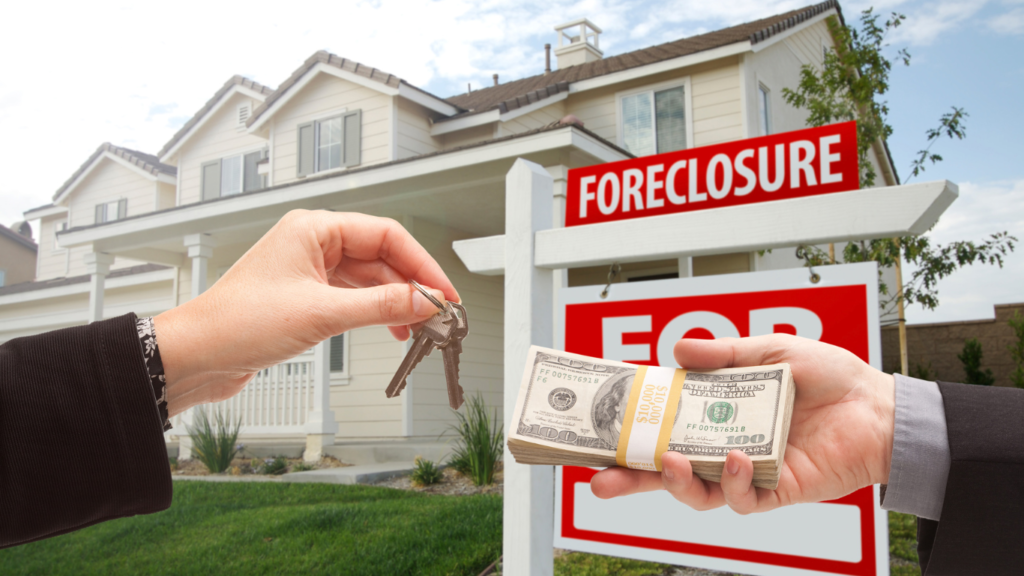A bankruptcy filing can be a daunting decision, but it may be the right decision for some homeowners. Knowing your options and the bankruptcy process can be helpful if you’re thinking of filing for bankruptcy.
This article will provide an overview of bankruptcy in Pennsylvania and outline the steps you need to take if you decide to file. So, whether you’re considering bankruptcy or just want to learn more about your options, keep reading.
What Is Bankruptcy?
Bankruptcy laws allow people to start over by liquidating their assets and, in some cases, creating repayment plans for their creditors.
Bankruptcy laws aim to achieve the following:
- Eliminate most of the debts of honest debtors to give them a fresh start.
- Pay debtors timely if there is property to repay.
How to Know When to File for Bankruptcy
When considering bankruptcy, it’s important to understand that it’s not suitable for everyone.
Here are some signs that you may need to file for bankruptcy:
- You’re being threatened with foreclosure.
- You’re frequently being called by debt collectors.
- You’re using your credit cards to pay for rent and food.
- You’re unable to work a payment plan with your creditors.
- You’re unable to stay current with your mortgage payments.
Is Bankruptcy the Only Solution?
Make sure you weigh all your options before considering bankruptcy. Two alternatives to bankruptcy are settling your debts or taking credit counseling. A financial advisor can help you determine which option is right for you.
It is also possible to reduce your monthly payments by consolidating your debt. This will save you money on interest and help you pay off your debt sooner.
You can also negotiate directly with your creditor. You will save yourself from bankruptcy if you are able to reach an agreement.
The Types of Bankruptcy
There are two main types of bankruptcies available for individuals in Pennsylvania: Chapter 7 and Chapter 13.
Chapter 7
Chapter 7 bankruptcy is usually the first option considered because it can be completed quickly and does not require creditors to be repaid. Furthermore, it’s a good option for people with minimal work and living needs since unnecessary luxury items won’t be lost. Lastly, keep in mind that filing for Chapter 7 bankruptcy will not allow you to catch up on mortgage or car payments, which means you can lose them if you’re behind at the moment of filing for bankruptcy.
Chapter 13
Chapter 13 filers, in contrast, are given three to five years to repay their debts. Unlike Chapter 7, Chapter 13 allows you to avoid foreclosure and car repossession while maintaining all your property. In addition, if you are unable to discharge your debt, you may be able to negotiate a payment plan with your creditor.
How to File for Bankruptcy in Pennsylvania
The cost of a lawyer deters some people from filing for bankruptcy. The cost of bankruptcy attorneys is the most expensive aspect of filing for bankruptcy in Pennsylvania. Fortunately, you don’t need an attorney to file for bankruptcy.
Below are the steps to do so.
- Gather Your Pennsylvania Bankruptcy Documents: You will need copies of your tax returns from the previous two years and your last 60-day pay stubs.
- Take a Credit Counseling Course: Learn more about the credit counseling course here.
- Fill Out the Bankruptcy Forms: You can download the forms free through USCOURTS.gov.
- Pay Your Filing Fee: Chapter 7 bankruptcy requires a court filing fee of $338. When your income does not exceed 150% of the poverty guidelines in Pennsylvania, you can request a filing fee waiver.
- Print Your Bankruptcy Forms: Make sure to print all forms on regular, white 8.5″ x 11″ paper using black ink.
- File the Forms With the Pennsylvania Bankruptcy Court: Pennsylvania is divided into three bankruptcy districts: Western, Middle, and Eastern. The documents can be mailed or delivered by hand to the court. A picture ID must be presented to the clerk when you file your documents in person. As a result of the COVID-19 pandemic, bankruptcy courts in the Middle District and Western District now accept electronic filings.
- Mail Documents to Your Trustee: You will be assigned a trustee after filing for bankruptcy.
- Take Another Course: Attend a debtor education course within 60 days of the 341 meeting.
- Attend Your 341 Meeting: Your creditors can attend this meeting to ask questions.
What Happens When You File for Bankruptcy in Pennsylvania?
Most of your unsecured debts will be discharged when you declare bankruptcy. However, student loans, child support, and alimony are not dischargeable in bankruptcy. Your bankruptcy choice may also require you to surrender certain assets. Moreover, bankruptcy does not cover the debt you incur after filing.
Does Bankruptcy Affect A Credit Score?
Your credit score will temporarily drop after filing for bankruptcy. Depending on the type of bankruptcy you file, your credit score reflects the bankruptcy for 7-10 years. Fortunately, following some financial tips consistently can help you rebuild good credit and reverse the damage.
The following actions can help you rebuild your credit:
- Taking out a small loan.
- Applying for a secured credit card.
- Maintaining a good payment history.
- Staying on top of your credit report for errors.
- Becoming an authorized user on a credit card.
Sell Your House for Cash & Avoid Bankruptcy in Pennsylvania
Having to file for bankruptcy is undoubtedly intimidating, and it is natural to attempt to avoid it as much as possible. Putting your house on the market may be the answer to your financial woes if you are overwhelmed by debt and worried about your future. You can avoid bankruptcy and regain your peace of mind by working with a trusted home buyer. Contact us at Favor Home Solutions today to learn more about how we can help you sell your home quickly as-is, without agent fees, and hassle-free!


